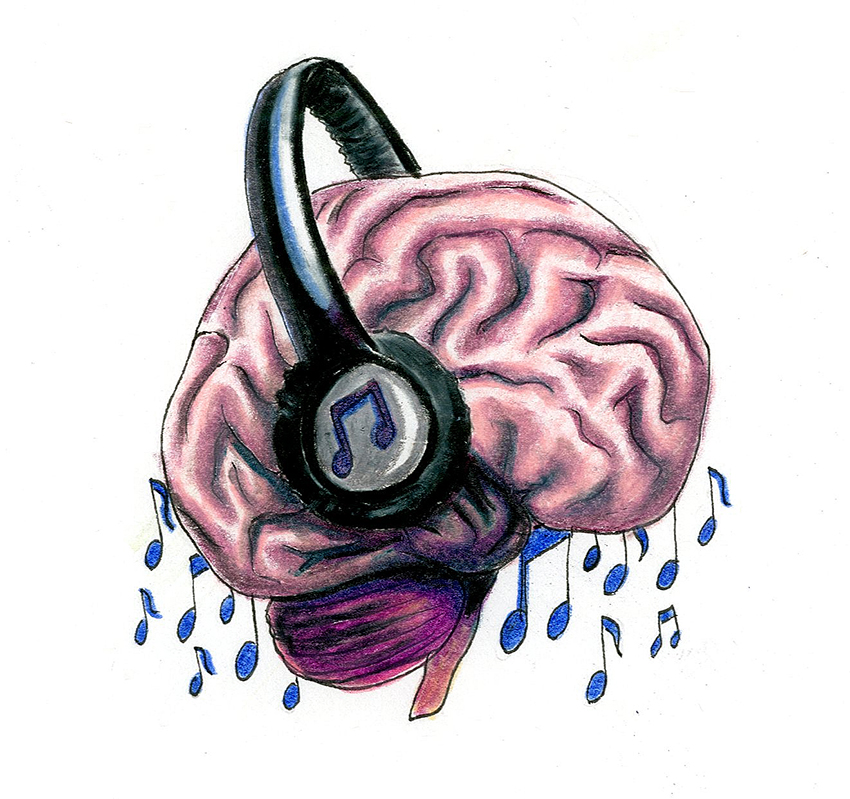Researchers at UT’s Center for Music Learning are teaming up with psychologists to understand and improve how we learn music.
Travis Marcum, a graduate student at the Center, studies the eye movements of musicians and music teachers in order to understand the difference between novice and expert music teachers.
Marcum said the teachers in the study were undergraduate and graduate students, as well as faculty in the Music & Human Learning Department, and the young students are from the UT String Project, a community education program at the Butler School of Music.
“We have found that expert teachers fixate more frequently and for longer durations on physical targets important to their immediate teaching goal,” Marcum said. “This indicates deeper processing and extended monitoring. For example, a teacher might fixate exclusively on the bow hand of her student when she is working to improve the bow hold.”
Marcum added that while this may seem obvious, the length of time a teacher focused on a certain target positively correlated with the teacher’s level of expertise.
“We might assume that experts in any field would not need to fixate and monitor aspects of their visual scene more deeply than novices because they are so familiar with the environment,” Marcum said. “But even in research exploring expertise in chess, we see that great players have longer visual fixations than intermediate players on targets important to the most advantageous next move.”
Psychology professor Mary Hayhoe, who conducts research using this technology in her Vision, Cognition, and Action Virtual Reality Lab, lent out eye tracking devices for Marcum’s research. Hayhoe’s lab uses eye tracking to learn what the brain is subconsciously looking at while a person is focused on something else.
She currently uses the technology to study people moving through rough terrain, a process that requires the eye to quickly examine the environment to find safe places for people to take their next step.
“In simple things, such as guiding a movement, to more abstract things such as predictive thinking, the visual system can give so much information.” Hayhoe said, “It can be used to predict movements and give an insight into timing and brain processes and information as to what the person is paying attention to.”
Bob Duke, the director of the Center, told UTNews how he thinks studying the visual gaze with this technology can be used to improve teaching
“What’s interesting to me is that this technology has not been deployed effectively in studying the interactions between teachers and learners,” Duke said. “I think this research will show us how expert teachers do what they do in a way that even many experts may not realize.”
Marcum said that the length of the gaze ultimately indicates the amount of thinking that goes into teaching music.
“If you think about driving, we look at a stop sign only as long as we need to identify it as a stop sign,” he said. “But for expert violin teachers, visual targets provide ongoing valuable information that they need to monitor for a longer duration in order to identify the most important lesson goals and respond with instruction that leads to students’ improvement.”
Lani Hamilton, a doctoral student who also works at the Center, said despite differences in subject matter, there aren’t too many differences between academic education and music education.
“We all have this brain in our head that we learn to work with, so essentially the challenges our brains face exist in everything we do,” Hamilton said. “From what I’ve looked at, (in order to learn) all of our brains have to perceive these discrepancies between what we want to have happen and what actually happens.”















